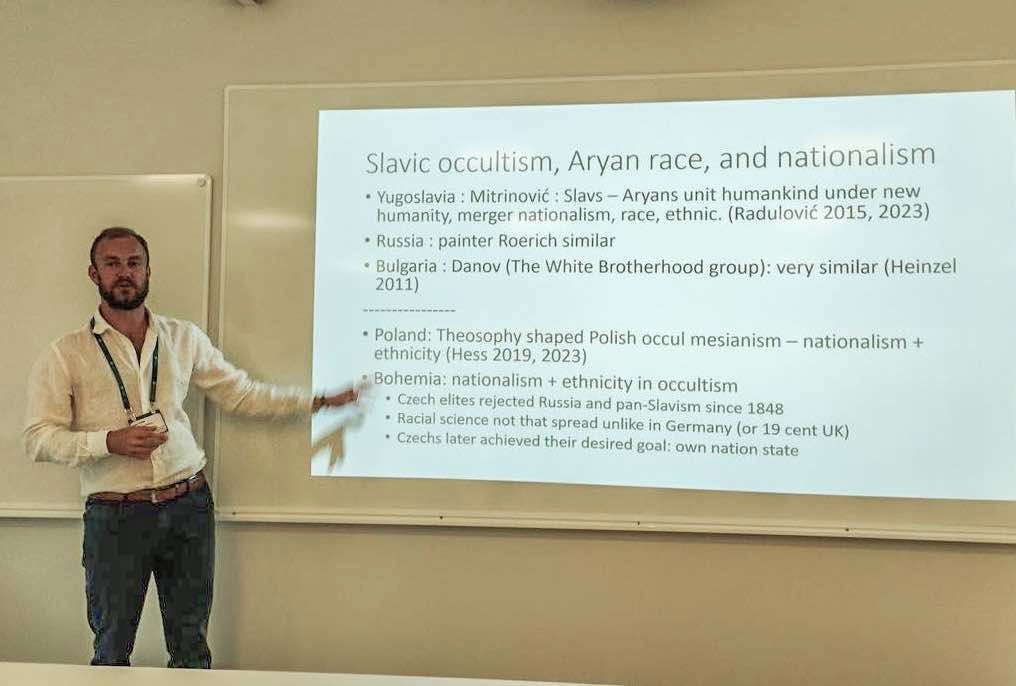Last month I had the opportunity to present my research on comparative Slavic and German occultism at the 23rd European Association for the Study of Religions annual congress in Gothenburg. My paper examined how early 20th century occult groups in Czechoslovakia and German-speaking countries approached questions of race, ethnicity, and nationalism.
While there has been extensive research on occultism’s links to German nationalism and racial theories, particularly through Nicolas Goodrick-Clarke’s influential work, the occult movements in Slavic countries have received much less scholarly attention. My research focuses on Czechoslovak groups like Universalia, Horev Klub, and Psýché in comparison with German/Austrian organizations like the Thule Society and Armanen Order between 1900-1939.
The discussion following my presentation raised fascinating questions about both specific historical details and broader theoretical issues. My colleagues were particularly interested in how Czechoslovak occult groups developed their own distinctive approach – one that emphasized universalist spirituality while still engaging with questions of national identity. This differs from the more explicitly racial focus found in many German occult circles of the time.
These differences reveal important nuances in how occult movements related to nationalist politics and ethnic identity in interwar Central Europe. As scholars like Nemanja Radulović have argued, Slavic occultism took a unique path in how it approached these sensitive topics.
The feedback I received will help strengthen this research as I develop it further. I’m particularly interested in exploring how these historical case studies can inform our understanding of the complex relationships between alternative spirituality, identity politics, and nationalism.
Feel free to reach out if you’d like to discuss this research further or share your own insights on occultism in Central Europe.
